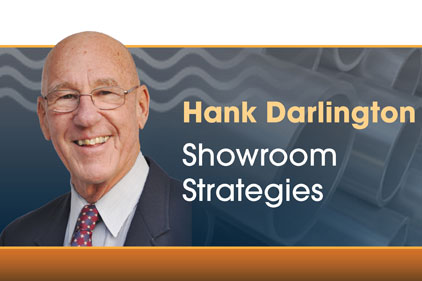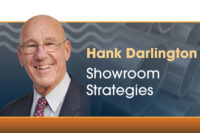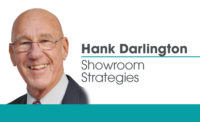Private label products are not new. They’ve been around a long time.
But the growth, importance and perception of private label products has changed dramatically in recent years. They used to primarily be commodity products of lesser quality that sold for considerably less money. That’s not the case today.
Many of the products are of equal or even better quality, but generally sell for less than the nationally recognized brand names. They have become very important to the bottom lines of the selling companies due to a much more attractive gross profit margin advantage.
Almost every well-known major retailer in America is now marketing their own private label products. Best Buy, Saks, Nordstrom, Home Depot, Lowes, Walgreens, Target and Walmart are just a few of the big players that have gone this route. Every major (and even some of the smaller) food-store companies also are big into this approach of increasing their bottom line.
These big-name companies are relentlessly innovating to create compelling and inspiring brands to compete head-on with traditional national stalwart brands. Historically, private label products lacked the equity and trust of their name-brand competitors, but the retail game has changed. Top private label brands are beginning to look and feel like the national brands that have been staples in our daily lives.
If you need further evidence that this change is a fact, IRI (a huge international retail consulting firm) states 70% of millennial women see store brands as having excellent quality, while 80% of all shoppers believe private label products are equal to or better than national brands in terms of quality and packaging.
Costco, with its Kirkland Signature brand, has done an exceptional job building its brand and leveraging existing equities to enter new categories. Each product is a value-priced alternative of equal or better quality than the nationally known brands next to them on the shelf.
Pay attention to this: Walmart has not only merged its in-store and online experiences, but also has
leveraged digital media to play up its private label offerings. Walmart offers price comparisons between its private label brands and national brands. The company encourages use of the in-store app by offering a product location map and search option.
It also discourages “showrooming” by keeping consumers engaged with the app itself vs. other websites or price-comparison apps. My last two columns talked about showrooms of the future where sales consultants will be armed with tablets and the showrooms will have their own in-store apps.
I just visited one of the nicest showrooms in America (in San Francisco) and all of its displays have QR (quick response) codes. Clients come in, can upload the showroom app, read the QR codes on their smartphones and learn about the products, styling, finishes and prices. They can do their in-store price comparison right in the showroom. (It doesn’t allow the client to go to other competitive websites). This same showroom does show and sell several private label and exclusive product lines. The owner tells me he sees this as the wave of the future.
Home Depot’s 40,000 orange aprons successfully guide shoppers to high-quality brand offerings across a number of categories that just happen to be Home Depot store brands. Home Depot’s private label plumbing products are sold under the name Glacier Bay. Lowes is doing the same thing – just under different names.
Best Buy, a big retailer you’re very likely familiar with, provides envious end-to-end in-store guidance led by its salesforce in blue shirts. These salespeople possess a superb knowledge base of why Rocketfish and Insignia (two of their private label brands) are as good or better products as their national brands which retail for higher prices.
Awhile back I wrote an article about a company called Pirch. It’s a new business that is opening large, beautifully built-out stores in some of the highest-end retail shopping malls in America. Pirch sells a well-known faucet company’s product, but it shows and sells slightly different styles and finishes all with in-house model numbers. This is Pirch’s way of eliminating showrooming and price shopping.
Pros and cons
That’s enough on these big businesses. Let’s talk about private labeling on products for your showrooms. There are a number of pros and cons that must be considered.
The biggest “pros” would be:
· Control of the distribution of the products;
· The opportunity to earn much better profits on the sales, and
· Protecting the identity of the products so they can’t be “shopped” on the Internet or with other competitors.
· These all are very compelling reasons to do private labeling. The biggest “cons” would be:
· Lack of brand recognition;
· Guaranteeing your vendor large enough quantities to make it attractive to them and feasible for you; and
· Being responsible for the various problems that happen from time to time.
Most of the vendors of our fine products don’t like private label. Heck, they spend a lot of money waving the flags for their brand and if they sold you products that don’t have their name on it, that identity is lost.
In my mind one of the biggest reasons to consider bringing in a few private label products of the most popular products you sell is to protect the identity of those products. The Internet has been a big game-changer. Your clients have learned how to shop their desired items with their main focus on that all-important ingredient: PRICE! Many times they will forego the many services you offer to save a few dollars.
Because you generally have to purchase larger quantities of private label products, you should be buying at very attractive cost points. Couple this with the fact clients will not be able to shop the item and your margins on these products should much better.
Private label considerations
Back in the 1980s and 1990s I was able to purchase private label faucets. We had to purchase widespread faucets in quantities of 50 or more and we had to put our own labels on the boxes — but it was tremendously profitable. As an example: Let’s say our cost per widespread was $100. We put a list price of $299 on it and sold it day in and day out for $225. That’s a $125 profit per faucet or a 55% GPM. Wow! Wouldn’t you like to have a number of products that would offer you that margin?
Several of the faucet manufacturers I talked with will do private labeling for their customers. In several cases they simply take spouts and handles they already stock, mix them up and put a different series number on it. This way the manufacturer’s brand name remains on the product but that showroom is the only one that shows and sells that particular look. It can’t be shopped and it doesn’t have to be sold at deep discounts.
It’s certainly no surprise Ferguson has several private label products in its mix. With all its branches and showrooms, Ferguson has the buying power to go to its suppliers and put together programs. Ferguson’s decorative plumbing products go under the name of Mirabelle. They’re fine products and I suspect they are excellent margin producers.
You may be familiar with the Forte buying group. Its membership is made up of manufacturers and showroom businesses. Forte recently has rolled out its own private label faucet line: Ammara Designs. Only Forte members can buy this product. The showroom members are “protected” by geographic areas. Consequently, there aren’t showrooms competing with each other. The product cannot be sold on the Internet for resale purposes and there is an established minimum selling price on all sales. As you would expect, margins on this product are very attractive. It’s my understanding the group is investigating expansion into other product categories.
When considering going the private label route, there are a number of things you need to consider:
· Who will warrant the product?
· Who will assume the liability of the product?
· How will catalogues, brochures, spec sheets, installation instructions and price sheets be developed?
· What packaging and labeling will be used?
· How big a commitment (quantity and dollars) will you have to make?
· Will you use a domestic source of supply or go to one of the many manufactures in Europe or Asia?
· How will you brand it?
· Can you convince your sales team to sell it?
In most cases there will be no manufacturers rep to provide service. You will inherit that responsibility. I can’t tell you whether going the private label route would be good for you. But, I would urge you to do some serious homework on the subject. Talk with your major vendor partners and see if there is an opportunity there.
I do know if I still owned my business I’d be doing it! Look at it this way: When your own sales consultants can help objectively guide your clients to your preferred products because the quality and promise holds up to the competitive offerings, it will put you well in front of your competitors.
Happy selling!
HELPFUL LINKS:







